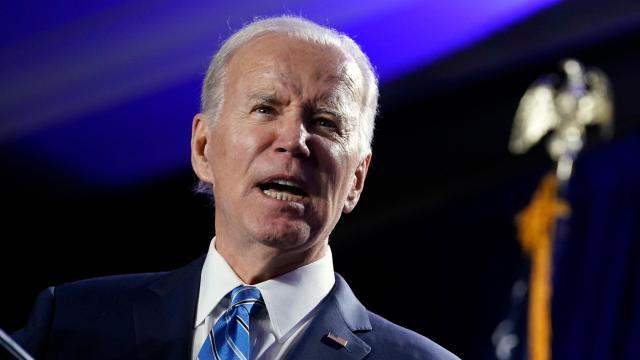President Joe Biden is expected to issue the first veto of his term to defend the right for retirement plan managers to direct client investments based on environmental and social considerations. The anticipated action follows the advancement of a Republican-backed resolution through the House and Senate this week aimed at targeting so-called “woke capitalism,” or environmental social governance (often abbreviated as ESG).
ESG is nothing more than a set of standards that investors and businesses can use to make more socially and environmentally conscious business and financial decisions. The practice certainly won’t solve the climate crisis on its own, and it might not even do all that much harm to company’s bottom lines. But for a certain political sector, the concept is an offence to capitalism — even though it’s an expression of the free market.
What’s the GOP’s beef with ESG?
Over the past few years, conservatives have added ESG to their ever-growing laundry list of “culture war” complaints. Last month, investor Vivek Ramaswamy launched his 2024 presidential campaign almost entirely on a platform crusading against investor choice through social values. Scott Adams, the Dilbert comics guy and noted racist, also recently declared war on sustainable investing.
But it’s not just the cultural arena — the GOP has also made its anti-ESG crusade into real policies. Texas was the first state to pass a law in 2021 forbidding the state from doing business with companies that “boycott” fossil fuels; at the end of last year, more than 15 states have passed or proposed similar legislation. And perhaps as a result of this pressure, some major firms are beginning to signal they are trying to exit their climate commitments.
Which leads us back to the Biden Administration and this particular fight.
What has been happening with ESG policy?
At the end of 2022, the Department of Labour passed a rule, which went into effect on January 30, allowing retirement plan managers to make decisions based on environmental, climate, or social factors. For example, if a client were interested in an account that avoided investing in the fossil fuel industry, their investment manager could make that option possible. The law does not mandate that they offer ESG plans nor that account holders opt for them.
The DOL rule was in response to (and a reversal of) a 2020 Trump-era policy that effectively barred retirement investment portfolios from being based in anything other than what plan managers believed would yield their clients the highest returns. (There is an argument to be made, by the way, that ESG aligns with long-term financial benefit — especially given the current state of our planet and the need to rapidly move away from fossil fuels.)
On Wednesday, Republican Senators — joined by West Virginia Democrat Joe Manchin and Montana Democrat Jon Tester — voted 50-46 to pass a joint resolution overturning the new rule. That same joint resolution had previously made it through the House on Monday with a 216-204 vote. Of their decision to side with Republicans, Manchin and Tester claimed that providing investors voluntary ESG options undermines both peoples’ retirement savings.
However, the biggest opponent to environmentally conscious investment is probably the fossil fuel industry itself. Multiple state bills aimed at outlawing fossil fuel investment “boycotts” are directly tied to industry lobbyists and funders through the American Legislative Exchange Council and the Koch brothers. In both Montana and West Virginia, fossil fuels are big business. Tester and Manchin’s stance is likely more about defending their state and personal stakes in oil, gas, and coal than their constituents’ retirement money.
How will Biden respond to the anti-ESG resolution?
Regardless of the exact reasoning behind the Senate’s vote, the Biden Administration has vowed to take action. As the anti-ESG resolution was coming up for vote in Congress, the White House issued a statement expressing its strong opposition to overturning the DOL rule.
“If DOL were to revert to the 2020 rule, the federal government would be interfering with the market in a manner that stands in the way of retirement plan fiduciaries’ ability to protect these hard-earned retirement savings and pensions and unnecessarily limit the options available to retirement plan participants and investors,” the statement reads. “If the President were presented with H.J. Res. 30, he would veto it.”
The resolution is now headed to Biden’s desk, and the President is expected to follow through on that veto promise.
